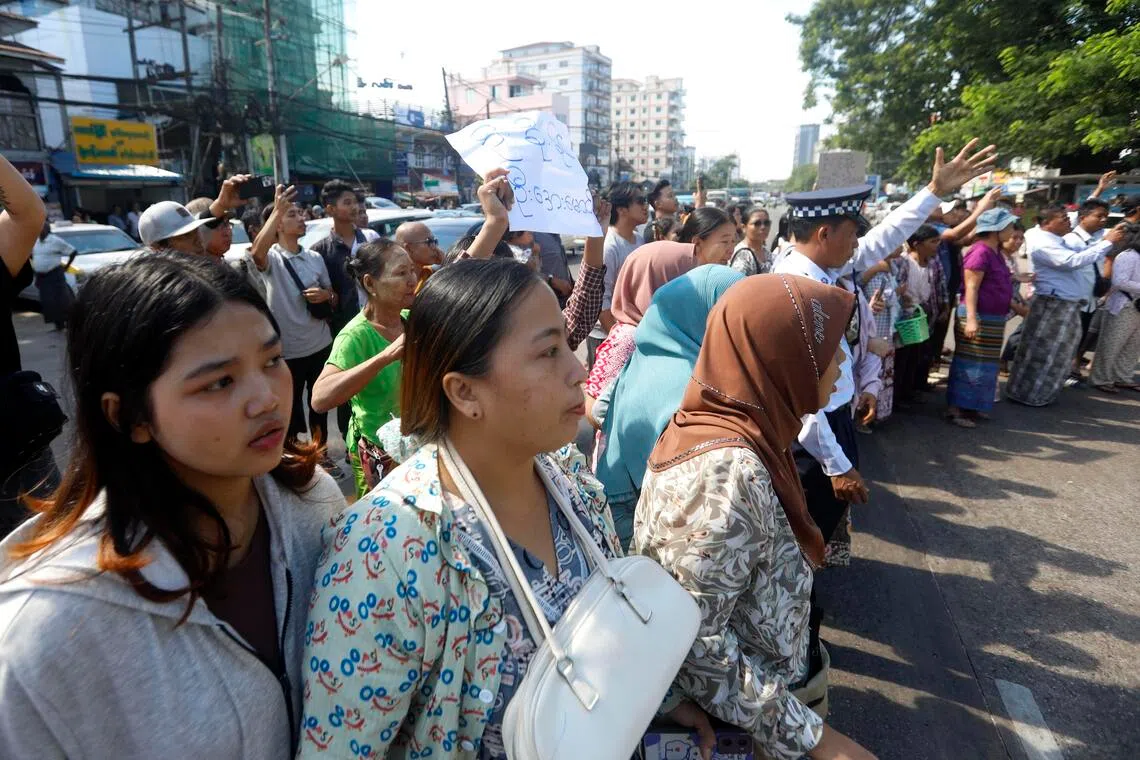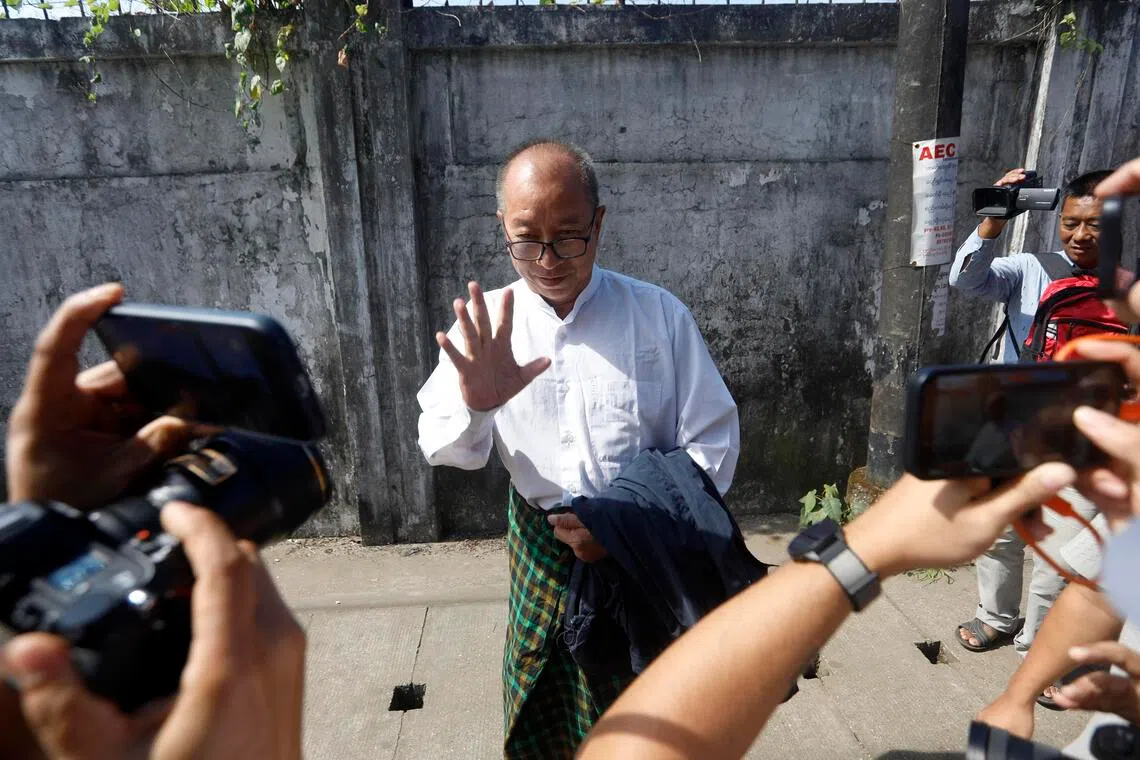Aung San Suu Kyi aide freed by junta in Myanmar pre-election amnesty
Sign up now: Get ST's newsletters delivered to your inbox

The junta announced on Nov 26 its most significant amnesty of political prisoners in years.
PHOTO: EPA
Follow topic:
YANGON – A key aide to Myanmar’s deposed democratic figurehead Aung San Suu Kyi was among hundreds of political prisoners freed by the junta in a pre-election amnesty on Nov 27, AFP reporters saw.
Myanmar’s military snatched power in a 2021 coup – toppling Ms Suu Kyi’s civilian government, jailing the Nobel laureate and making unsubstantiated allegations of electoral fraud after her party won national polls by a landslide.
The coup prompted a devastating civil war, but the military has scheduled phased elections beginning on Dec 28
The junta announced on Nov 26 its most significant amnesty of political prisoners in years, saying 3,085 prosecuted under post-coup legislation restricting free speech would have their sentences dropped.
It is unclear whether that full number will be released, as many may have additional convictions.
But AFP reporters outside Yangon’s Insein Prison saw around 200 prisoners freed on the morning of Nov 27.
Families holding placards bearing their relatives’ names waited as white minibuses ferried out prisoners before they locked in tearful embraces.
Among them was Mr Kyi Toe, the former information committee chief of Ms Suu Kyi’s National League for Democracy (NLD) party, who was jailed since 2021.
He largely avoided the topic of politics in a post-release interview, but pledged “to be strong to work together” with Ms Suu Kyi, who remains sequestered in military detention in the capital Naypyidaw.
Her NLD party, which won the 2020 polls, has been dissolved by the junta

The National League for Democracy party’s Mr Kyi Toe addressing the media upon his release from Insein Prison in Yangon on Nov 27.
PHOTO: EPA
Several rights monitors and a United Nations expert have dismissed the vote as a fig leaf to conceal continuing military rule, but the pre-election prisoner amnesty is a rare backtrack of political prosecutions.
Those released had been prosecuted under a post-coup penal code amendment punishing comments that “cause fear” or spread “false news” with up to three years in prison.
The clause is frequently cited by media freedom groups as one of many speech curbs the junta has used to cudgel dissent.
But the military government said prisoners were freed to ensure “every eligible person” would be able to “freely and fairly cast a vote” in the upcoming election.
A 60-year-old man from Yangon, whose daughter was released after her arrest in March 2024, told AFP she had been jailed for her social media activism with the NLD.
“I don’t think such releases should be related to the election,” he said, speaking on condition of anonymity for security reasons. “Every political prisoner should be released.”
While the junta has forgiven past speech law breaches, it has also introduced new legislation punishing criticism or protest against the election with up to a decade in prison.
More than 22,000 people are currently in junta detention, according to the Assistance Association for Political Prisoners monitoring group. AFP

